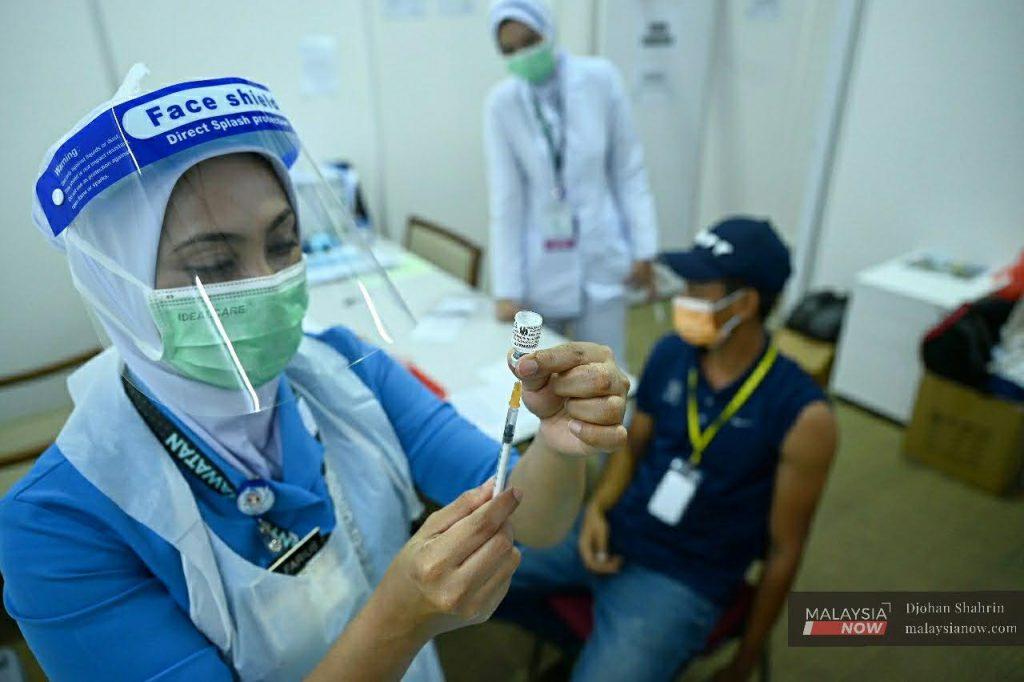Experts sound alarm after ‘tougher’ Covid-19 variant detected in Sarawak
The P3 variant, first detected in the Philippines, has mutations linked to the deadly UK and South African variants.
Researchers at Universiti Malaysia Sarawak have confirmed the existence of a Covid-19 variant that could be more resistant to vaccines, prompting warnings by experts for the public to remain vigilant and adhere to SOPs as authorities battle a sharp spike in daily cases nationwide.
Experts from the university’s Institute of Health and Community Medicine (IHCM) confirmed that the B.1.1.28.3 or P3 variant had been found in eight samples taken from Kuching and Samarahan last week.
The P3 variant was first reported in the Philippines in March, and was identified in import cases in the UK.
IHCM director Dr David Perera said the variant has greater transmissibility and may escape the neutralising antibody response.
“We strongly urge the public to continue adhering to the SOPs and guidelines, particularly mask wearing, hand hygiene and physical distancing, and the need to achieve herd immunity through the vaccination programme.
“These efforts will help slow virus transmission and reduce the chances of future variants evolving in the community,” said Perera.
Sarawak epidemiologist Dr Andrew Kiyu Dawie Usop said the P3 variant could be a pandemic as it can spread faster than the original version.
Viruses constantly change through mutation, and new variants of a virus are expected to occur over time.
Kiyu said changes to the spike protein were a crucial point for scientists to observe in virus mutations.
“Whether the mutation could pose a greater threat to human lives, one important fact is that the virus is always changing.
“It’s like a human giving birth, every time they multiply, the ‘children’ (the virus after mutation) will look different from the mother and father (the virus before mutation).
“Every time the virus mutates, a new virus variant will emerge. This means that the change in the spike protein will allow the virus’ spike to latch on to human cells and function more efficiently,” he explained.
Kiyu said the P3 variant could be more contagious since it was mutated with two different virus genes.
“The viruses are all different – in a way, it could be more powerful. For example, it could evade the antibody. However, some of those changes could result in nothing. Otherwise, the mutation can make the virus be more effective than a vaccine where it can invade human cells easily.”
He said the P3 variant is characterised by two key mutations, the N501Y and E484K, which are respectively shared with the deadly UK (B.1.1.7) and the South African (B.1.351) variants.
“This strain may not be able to provide full protection against reinfection as it is capable of escaping from the antibody. That is why the current vaccine cannot fight it,” he added.
Subscribe to our newsletter
To be updated with all the latest news and analyses daily.
